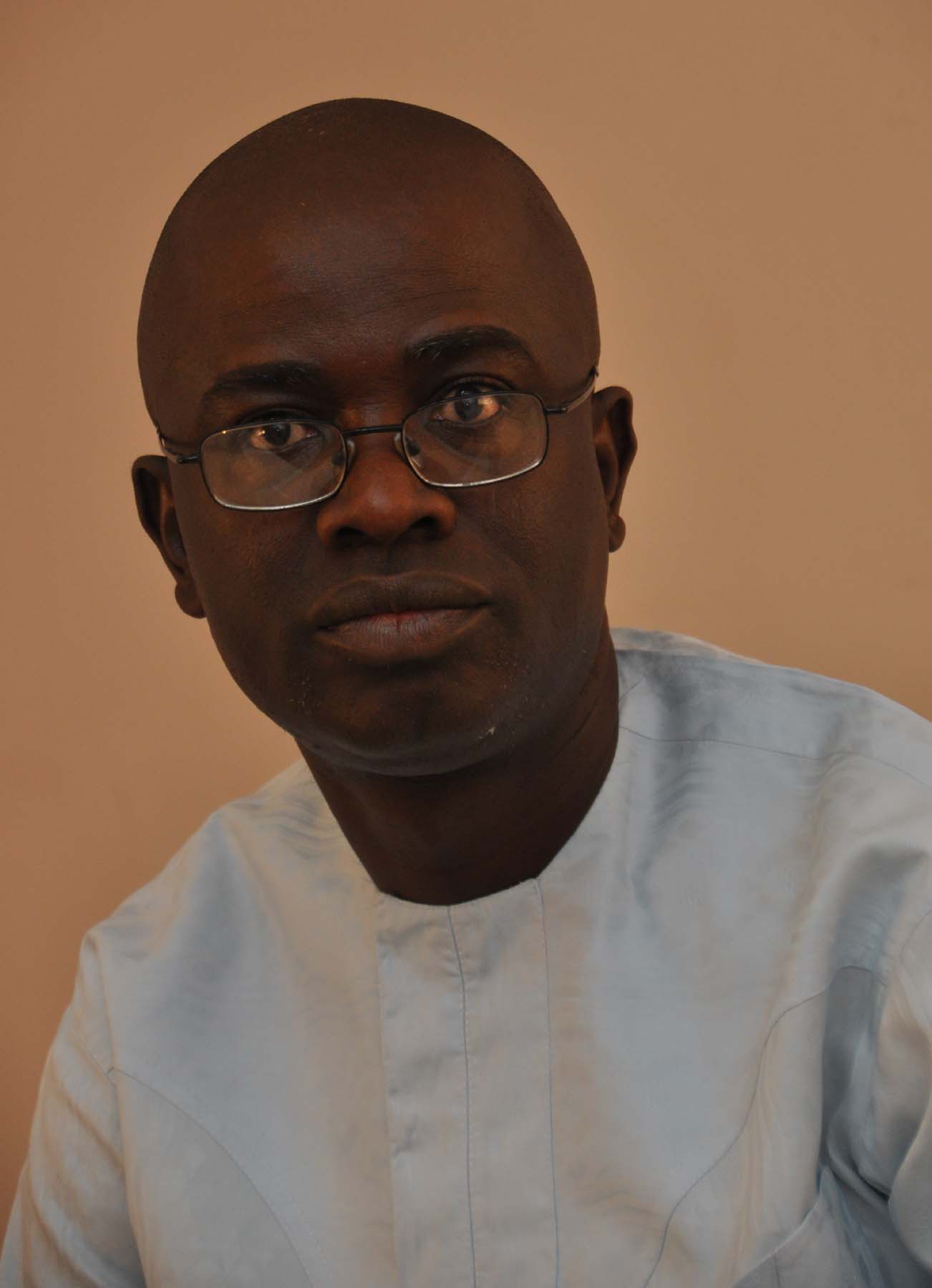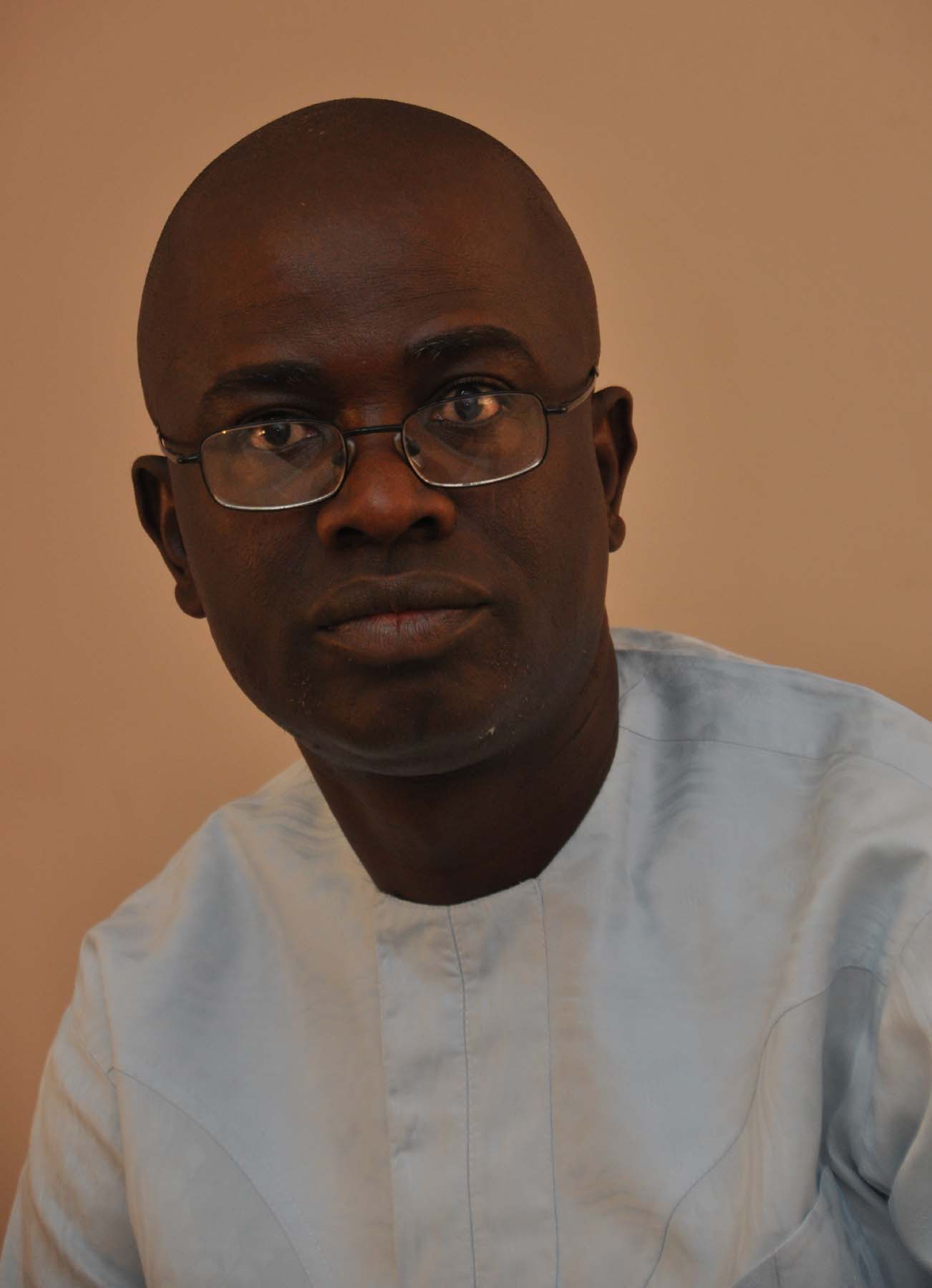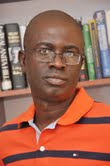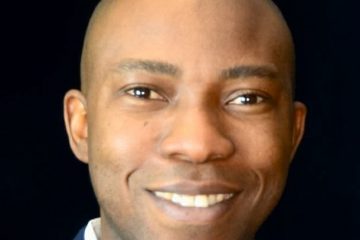I simply kept quiet whenever I wasn’t convinced of a presidential decision – Segun Adeniyi

Olusegun Adeniyi was the Special Adviser to late President Umaru Musa Yar’adua on Media and Communication and currently the Editorial Board Chairman of Thisday newspaper. In this interview with Suraj Oyewale, JARUSHUB editor, he reflects on his time as the image maker for the late president, his career as a journalist and other matters.
JARUSHUB: You hardly discuss your background in your column. Even in your book, ‘Power, Politics and Death’, you didn’t write much about your background, for instance, compared to Nasir el-Rufai that devoted more than a section to his growing up years in Katsina and Kaduna states in his ‘The Accidental Public Servant’. Can you give me a brief insight into your growing up?
I don’t think that is correct as most people are quite aware of my background. But if I understand you correctly, you are comparing my book on the Yar’Adua years with Mallam Nasir el-Rufai’s book, which is part autobiography while mine was restricted to my stewardship as spokesman to a president who died in office. However, I also do have an interesting story to tell as someone who come from a rather humble background and spent his formative years in the village.
One story I will never forget was my mother telling me of a period she had just the cloth she was putting on and would go to the river, wash and wait for it to dry. But such would not fit into the narrative of a book meant to share a few insights about the presidency, illness and death of the late Umaru Musa Yar’Adua. What I did with the Yar’Adua book was to pick a few of the landmark issues that defined his administration as well as the tragic drama of his last five months alive.
JARUSHUB: You studied International Relations in Ife, did you ever think of becoming a journalist or you found yourself in the profession by accident?
I am by no means an accidental journalist. It was something I started right from the campus at Ife where I was not only editorial board chairman of Petals magazine but also editor-in-chief of an inter-campus publication called Campus Circuit. So in a way, my journalism was a case of preparation meeting opportunity in that two weeks after my NYSC primary assignment in 1990, I was given a note to the current managing director of The Guardian, Mr Eluem Emeka Izeze who was then the editor of The Guardian on Sunday by his friend, Mr Segun Babatope who was then in Concord Press.
Some interesting events conspired in my favour such that I was employed as a staff reporter by The Guardian newspaper after a trial period of less than one month. That was at a time when aspiring reporters could spend years on trial in the place and at the end would still not be employed. My career journey from The Guardian to Concord and finally to THISDAY is another interesting story that will make a compelling read in my memoir should I ever write one.
JARUSHUB: I used to read your column before you became Special Adviser to President Yar’Adua and on your return, and I think you are a little softer now. Does this have anything to do with your being in government? Has anything changed about you from your experience in government?
Well, the way I see it is that I am no less critical than I was in, for instance, April 2007 but I am definitely older now and that has to reflect in my approach to issues. Yes, I am not as brash as I was then and definitely more sympathetic when the subject happens to be an individual. Generally, I like to address issues now and I use the benefit of my experience in government to proffer solutions.
But I know what has changed in my writing. Between 2000 and 2007, I was very critical of President Olusegun Obasanjo but there is no way I can write about President Goodluck Jonathan the way I wrote about Obasanjo, and the reasons are personal. One, I worked in a government in which he was number two and eventually became number one—so he is someone with whom I have had personal interactions. And two, many of the people who work with him were my colleagues at the villa and now my personal friends.
You are aware of course that his spokesman, Dr. Reuben Abati is like a brother to me. So, if I feel very strongly about anything concerning the person of the president, there are people I can call to make my views known. But that does not mean I cannot be critical of his action as president and I have been and will always be though in a constructive way.
For instance, when I noticed that some Ijaw people around him were making more enemies for him rather than friends, I wrote a critical piece titled “Their Son, Our President”. Of course it was not well received at the villa but I needed to let him know how many people felt at the time. It is hard to be a president in our country because the president is held responsible for all the ills. Such is the burden the president bears that even governors who ordinarily should be held to account point fingers at Aso Rock.
To that extent, I cannot but be sympathetic towards the president having worked with one. However, while conceding that I am no longer as hard-hitting as I was in those days, I also have a record of my former columns and when I go through them again these days, I think my writings are better and more purposeful now.
JARUSHUB: As SA on Media and Communication to the president, you were the presidential image maker. This means you had no input in sectoral decisions, yet it was your job to defend whatever decision was taken by government. Were there times when your conscience conflicted with what your job required you to defend? In other words, how did you feel having to defend, or manage, what was against your conscience, if there was any?
I don’t know where people get the impression that spokesmen don’t contribute to policies, that we simply announce. That is very wrong. At least I can speak for myself and there are many people who can attest to that. I attended all high-level meetings of the president where decisions were taken and he always allowed me to air my views. The only meetings I was passive in were the Federal Executive Council (FEC) meetings and what do they discuss in FEC except contracts? In fact, it got to a point I always sneaked out of FEC meetings to go and attend to more productive things in my office. Even at FEC, if there were issues on which I felt strongly, I would write a note and give the president.
In essence what I am saying is that a spokesman to the president is not someone they would give a statement to just go and announce. The office is bigger than that. You are also forgetting that the official title of the office is special adviser to the president even though I say with all modesty that it was because of me that the office was elevated. The story is well documented but it was THISDAY chairman, Mr. Nduka Obaigbena, who told the late president that the editor of THISDAY, which I was at the time, would not take a job that was not of cabinet level. His negotiation was that if it was made special adviser, he would make me to change my mind to take the job because I had turned down the offer several times.
Now, were there decisions that I was not happy with and had to announce? Yes, and one I can easily recall is the unfortunate Nuhu Ribadu drama at EFCC but I never defended his removal. I was lucky to have served a boss who believed in me and who understood that I had a right to certain convictions. Whatever decisions that I didn’t agree with, I never defended and I can challenge anybody on that. In such situations, I simply kept quiet.
JARUSHUB: Your friend, Professor Pius Adesanmi, in an interview he granted this blog last month, is of the opinion that you fell prey of ‘rosy rationalizations’ by accepting to take the offer to be Federal Government’s image maker. Looking back, do you have any regrets accepting the position? Will you consider a government offer again e.g. Minister of information?
One thing I never take for granted is that people generally are kind to me and it is in that context I take Prof. Pius Adesanmi’s view which I also read. He was very generous to me and I appreciate it. The fact is that not many people were happy that I went into government and believe me, it was an offer I turned down several times and one I thought had even been given somebody else because it was on May 30, 2007, a day after he was sworn in that the late president spoke to me again from the mobile phone of Mr Obagbena.
The first offer was made to me on April 24, 2007. I thank God that Dr. Aliyu Modibbo is alive because he can bear me witness that not only did I consistently turn down the job, he actually invited me over to Abuja from Lagos where he asked me to suggest names of journalists I considered worthy for the job to him and I actually did. But looking back, I am happy I went into government and even when I might have come out with some bruises, I know within my heart of heart that I tried my best under the prevailing circumstances. I also know that notwithstanding the illness which eventually cut short his life and presidency, President Yar’Adua did his best for this country and ultimately history will be very kind to him.
As for me, I am wiser for going into government and I understand our country far better than I did in 2007. So it was a worthwhile experience for me. As to whether I will go into government again, I am very unequivocal that I will not and it’s not because of my past experience or anything but rather because I believe I have been fortunate to have held the highest political appointment any journalist could aspire to in his country.
There is no other job above spokesman to the president for a journalist and as for Information Minister, I am sorry to say with all due respect, I don’t know what the job is all about. Well, let me clarify that a bit, because there are government agencies like Nigerian Television Authority, Radio Nigeria, News Agency of Nigeria (NAN) and others under the ministry so it has a responsibility but that is not the job I aspire to. It is essentially for politicians though it helps if such person has background in journalism. To that extent I would say my brother, Mr Labaran Maku has been doing a marvelous job under a very difficult situation but you know he is a politician having been deputy governor for eight years so he is well suited for the office.
JARUSHUB: One of the focus of this blog is political economy. From your article, “Days of the ‘Cabal’” (June 9 & 16, 2011), you mentioned how Dangote, Otedola and co invited you to Andy Uba’s house in Abuja as editor of arguably Nigeria’s most politically powerful newspaper with a view to seeing how you can be of editorial help in nailing Peter Odili, who was said to be President Obasanjo’s favourite as successor. That is political economy (economic actors – Dangote and Otedola – influencing political decisions). Now, from your assessment, do you think such influence is good for Nigeria’s democracy?
I suppose such things happen everywhere in the world but in the background. I particularly recalled that event because it fitted perfectly into my narrative of the circumstances that produced the late Yar’Adua as president and Jonathan as vice president and subsequently president, especially with regards to the role President Obasanjo and some of his henchmen played. Whether such influence is good for our democracy or not is not for me to judge. I am simply a reporter.
JARUSHUB: Now to your career (this platform is primarily career-centric), journalism, as practiced in Nigeria, is not so financially rewarding, especially in the short to medium term. This has made ‘ brown envelope’ syndrome pervasive in the system, to the extent that some people have formed the habit of dismissing every news as ‘bought’. How real or severe is this menace in the system?
I understand the challenge that we journalists face, especially given the rot within the Nigerian system but my response to that question would be that even under the most difficult terrain that we operate in, journalism has done far greater things for this country than any other profession and our practitioners have sacrificed more even when the remunerations are not that good. From the colonial struggle for independence to the fight against military dictatorship, especially under the late General Sani Abacha, many of our colleagues paid the price. So people should not forget that when they derogatorily talk about journalists.
Now, do we have issues of corruption in the media? The answer is yes but I was for many years a reporter myself and one thing I have discovered is that the journalists who cheapen themselves with collecting envelopes whether brown or green after assignments or being paid to do their jobs hardly make it. You may not believe it, but we live in a society where people talk and words do get around. Once people know that you are a cash-and-carry journalist, ultimately, your reputation will catch up with you.
The problem of ethics is there and I will not gloss over it but one thing I also know about Nigerian politicians is that once your report conflicts with their own expectations or is something they don’t agree with, they will claim somebody must have paid you to write it. I am saying that with all sense of responsibility as someone who has been a reporter, an editor and also a columnist. Nobody has ever paid me to write something or report a story but I have had accusations and I will give you two. Sometime in 2002, I did an in-depth story on a case of round tripping at FCMB because I got all the documents.
The other side to the story, however, was that my report also exonerated the bank of the charges leveled by one customer but I proved conclusively that the bank round tripped. Now, following my report, I got several mails commending me but it turned out that the bank was not concerned about the round tripping bit, what interested them was the fact that I could bring out the fact that they had not duped a particular customer as claimed. It was a celebrated case in the media at the time.
So what did the bank do? Without even as much as contacting me, they advertised the story which had my byline on Thursday in THISDAY newspaper. Now, my column comes out on Thursday and some people who read the advertorial jumped to the conclusion that I was paid by the bank to write the report.
I took the allegation in my strides until a prominent Nigerian I don’t want to mention called to invite me to his office to advise me. He began with a preamble as to how I had become important and should be careful. He said he had just returned from Abuja and ran into two ministers at Hilton who were discussing the story and one claimed he saw the cheque with which I was paid by FCMB. I just broke down in tears because the people from the bank did not even call to thank me for the story which evidently favoured them, yet I was supposed to have been paid for it.
The second story happened just last week. I did a critical column on the capital market and somebody sent me a personal mail that I must have been paid by the embattled DG of SEC. Now, this is a woman I had never met and interestingly, two days later I got a call while still in the US that the woman granted an interview where she scolded me for saying she needs a lesson in humility and human relations.
As it would happen, when I was returning from the US, we were on the same plane from London and as we came out of the aircraft in Abuja, she was walking with the CBN Governor, Mallam Sanusi Lamido Sanusi with whom I exchanged pleasantries but she just ignored me and walked past. Yet this was the woman who was supposed to have paid me to write for her.
So it is common in our country for politicians and business people to accuse journalists of being paid by their opponents. I guess it comes with the terrain. While I am not saying there are no journalists who do that, what I am saying is that in Nigeria most people judge others by their own standards.
JARUSHUB: Looking back, will you say you are fulfilled as a journalist? Or there are times you think you could have chosen another path?
I don’t know any other job that could have given me the satisfaction I have from journalism. I love reporting—I mean reporting stories. That was what I wanted to do before Mr Obaigbena drafted me to chair the editorial board and I will one day go back to reporting. I like to break stories and with my contacts, I know I will break so many stories when I go back to the field. If you observe my column closely you will realize it is mostly reportorial. That has always been my strength.
JARUSHUB: Your friend, Simon Kolawole, once said he would like to go into farming after his journalism career. What’s your own post-journalism career plan?
I have no post-journalism plan. I want to be a reporter till I die. But I also plan to be writing books, serious books because I have also realized I can make small money from writing. My last two books have proved that. The Last 100 Days of Abacha which I published in 2005 was a commercial success and so is the Yar’Adua book. I have no desire to be a farmer like Simon. My late father was a farmer and carpenter and I have no plan to follow after that career path.
JARUSHUB: On a lighter note, we had to reschedule this interview a couple of times due to your busy schedule. You just came back from United States where you had gone to attend Harvard reunion at Cambridge MA, hopped back into Nigeria to meet your weekly editorial board meetings, and you’ve got your column to write too. How do you relax in the midst of all your tight schedules?
The point really is that one can always create time for whatever you want to do. Yes, one gets so busy sometimes that you don’t even have time for yourself. But what I have is what I would consider a good problem. There is hardly any day I would not get an invitation either to come and speak somewhere or to help review a book or to make one contribution or another. I have more demands of my time than I can cope with. It can be very tasking and it has been but I always reflect and thank God for such a challenge.
I have seen people go into government, give their best and then come back only to be ignored by the society. That such is not my fate is something I thank God for so I always create time for whatever I have to do. Looking back to where I am coming from, I cannot afford to take anything or anybody for granted so I like to create as much time for others as I possibly can. That can take its toll as I said but I would not want it any other way.
Thank you, Segun.
Related interview: Pius Adesanmi
Established in March 2013, JarusHub is a Nigerian information hub with focus on career and management. It is rated Nigeria's most authoritative destination for online career resources. It parades an array of Nigerian professionals who share their career experiences with a view to bridging career information gap and mentoring a generation to success. Whether you're a student, a recent graduate or an established professional, or even an executive, you will always find something to learn on JarusHub. All enquiries to jarushub@gmail.com or 0808 540 4500. Facebook: www.facebook.com/jarushub; Twitter: @jarushub or @mcjarus.
Making the most of your 9-5: An Interview with Jarus
June 27, 2021
16 comments
Let us have your say by leaving a comment belowCancel reply
Recommended For You
-
What can I do while ASUU are on strike?
September 1, 2013 -
COMPANY REVIEW: LAFARGE CEMENT NIGERIA
May 14, 2018 -
Non-Football Facts About Pele (ii)
October 23, 2013







Very interesting and insightfull interview. It makes me know former SA more. Merci Jahrus.
Olusegun Adeniyi- the only presidential’s mouthpiece am aware was never controversial, always straightforward, blunt, articulate and lots more.
However, no thanks to the ill-health of Late Yar’adua that made him a little bit controversial as he was no where to tell Nigerians the whereabout and the state of health of his boss. Of course, one cannot blame the astute journalist as the power play going on in the Presidency goes beyond what we thinks.
Well done, Jarush.
I have a perception about Jarus and this interview is confirming my perception that he is a journalist and only strayed to be a chattered accountant. Imagine Jarus working his way to interview people that are one of the best and busiest in their fields, that even some known media houses find it difficult to access; this tells who this guy is. Well, he would have excelled if went into journalism like he is doing as an accountant. As for Mr Segun Adeniyi, I think he is wiser now after seeing what it is to be at the top of a country called Nigeria, where we have more bad people than good ones and where some critics are part of the problems the country have.
Thanks for your comment. I never had a single day training in journalism. But I am a friend of the media – I have been reading newspapers since primary school. So somehow, I know how it works.
[…] Segun Adeniyi, ex-Media Adviser to late President Umaru Yar’adua […]
[…] Segun Adeniyi, ex-Media Adviser to late President Umaru Yar’adua […]
[…] Olusegun Adeniyi – Former Special Adviser to late President Umaru Yar’adua on Media and Communication and currently editorial Board Chairman, Thisday newspaper. […]
[…] Adeniyi, in an interview he granted this blog recently, said one of his toughest times as presidential spokesperson to late President Yar’Adua […]
[…] interviewed on this blog include, former Media Adviser to late President Yar’adua, Mr. Segun Adeniyi; CEO of Accenture Nigeria, Mr. Niyi Yusuf; Professor Pius Adesanmi, amongst others. Our career […]
[…] exclusively interviewed on this blog include, former Media Adviser to late President Yar’adua, Mr. Segun Adeniyi; CEO of Accenture Nigeria, Mr. Niyi Yusuf; Professor Pius Adesanmi, amongst others. Our offline […]
[…] Special Adviser on Media and Communications to late President Umaru Musa Yar’adua, Mr. Olusegun Adeniyi, will be one of the speakers at the second Jarushub Career Conference, slated for Lekki, Lagos, in […]
[…] all these heavy weights at a time!”. Somebody also once commented on this blog after reading my interview of Segun Adeniyi, former media Adviser to late President Yar’adua: “Jarus, how did you get these people for […]
[…] Olusegun Adeniyi – Former Special Adviser to late President Umaru Yar’adua on Media and Communication and currently editorial Board Chairman, Thisday newspaper. […]
[…] Mr. Olusegun Adeniyi, former Presidential Media Adviser, Federal Republic of […]
[…] Olusegun Adeniyi – Former Special Adviser to late President Umaru Yar’adua on Media and Communication and currently editorial Board Chairman, Thisday newspaper. […]
[…] Olusegun Adeniyi – Former Special Adviser to late President Umaru Yar’adua on Media and Communication and currently editorial Board Chairman, Thisday newspaper. […]